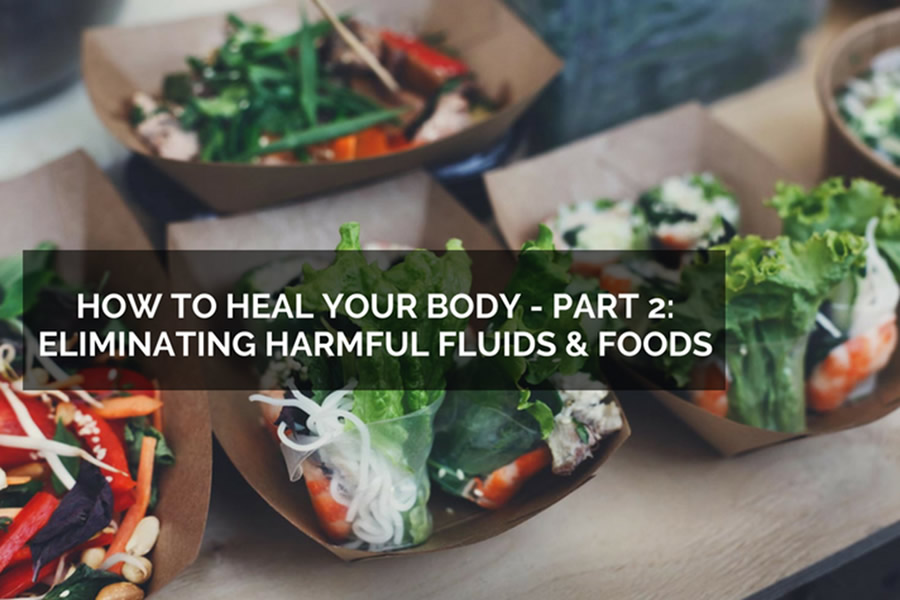
Following on from Part 1 of the 10 Secret Strategies series, we now move on to strategies four to seven which focus on eliminating harmful fluids and foods.
4) Stop alcohol intake completely
Alcohol affects just about every system in the body because it’s a small molecule and can go everywhere in the body. The throat, stomach, small intestine, liver, gallbladder, heart, blood vessels, and skin can all be negatively affected. Although this may seem like common sense, alcohol intake presents a significant, but often overlooked, barrier to healing.
Recent studies have demonstrated that chronic inflammation is often associated with increased alcohol intake. The key components of this effect seem to be the negative impact that alcohol has on the gut (small intestine), liver, central nervous system and other multi-organ interactions.
Considering the widespread negative effect that alcohol has, it makes sense that stopping alcohol intake would have a positive effect on the healing process.
5) Stop drinking coffee and avoid all other sources of caffeine
This recommendation is based more on clinical observation than scientific studies. However, I have noticed a significant healing benefit when clients stop drinking coffee during the treatment process. Here are some possible reasons for this observation.

- Caffeine acts as a natural diuretic, and dehydrated cells have difficulty absorbing nutrients and eliminating waste.
- Caffeine may contribute to adrenal fatigue. Large amounts of caffeine can ‘stress’ the adrenal glands and may lead to a fatiguing effect which is often associated with irritability, anxiety, trouble sleeping, mood swings, and lethargy. Hormones released by the adrenals also play a significant role in reducing inflammation within the gut and promote health and healing of other endocrine glands.
- Caffeine can act as a mild gut irritant in some people. Inflammation within the gut may lead to poor nutrient absorption from the cells lining the gut wall.
- Caffeine has also been shown to block the absorption of magnesium, a key mineral that is essential to the colon’s regulation of normal, healthy bowel movements. The constituents of coffee compound the problem by acting as a mild laxative, causing a bowel movement before the absorption of water and other mineral nutrients. This may cause dehydration and malnourishment.
- One study found that caffeine had a negative impact on wound healing.
Easing off coffee may sound daunting. You may find it easiest to slowly reduce the number of cups you have per day before switching to black tea or green tea. Once this transition is made, temporarily stopping caffeine is much easier.
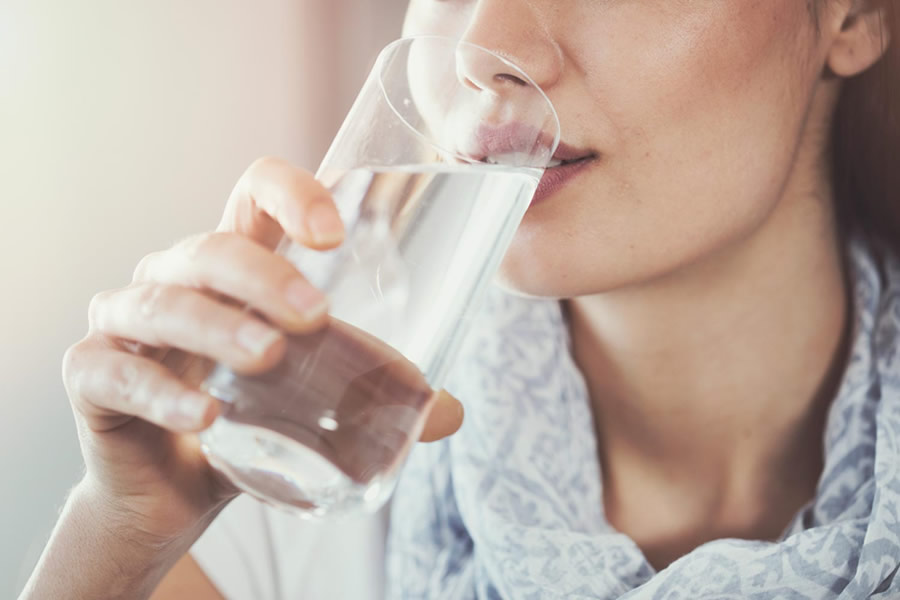
6) Increase your water intake to 3 litres per day
Almost 20 years ago I read an incredible book called “Your Body’s Many Cries for Water” by Dr Fereydoon Batmanghelidj. The information in this book brought to light the importance of maintaining proper hydration and the significant negative effects of chronic dehydration.
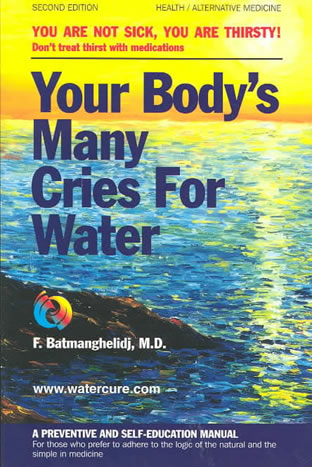 Dr Batmanghelidj describes how the body has its emergency calls for water and how these ‘many cries for water’ are often misinterpreted.
Dr Batmanghelidj describes how the body has its emergency calls for water and how these ‘many cries for water’ are often misinterpreted.
- Heartburn
- Rheumatoid joint pain
- Back pain
- Migraines
- Headaches
- Colitis pain
- Fibromyalgiac pain
- Angina Pain
- Joint Pain
- Arthritic Pain
- Fever
- Gastric Reflux Oesophageal Disease
We often misinterpret the body’s need for water as hunger pains. Water is necessary for the body to digest and absorb vitamins and minerals. It is also key to proper digestion, it detoxifies the liver and kidneys and carries waste away. With the general population believing that coffee, tea, fruit juice, energy drinks and soda contribute to their daily water intake it is no wonder so many people suffer from dehydration.
- It is estimated that the prevalence of dehydration in adults is between 16 and 28% depending on age, with the elderly being at the greatest risk.
- Water represents a critical nutrient whose absence will be lethal within days. Water’s importance for the prevention of nutrition-related non-communicable diseases has emerged more recently because of the shift toward large proportions of fluids coming from caloric beverages.
- The water contained within beverages such as coffee, tea, fruit juice and all other beverages does not have the same positive effect as drinking pure water.
- 60% of the human body is composed of water: 75% in our muscles and 85% in our brains.
Over time chronic dehydration can lead to a wide array of medical complications ranging from chronic fatigue, joint pain, headaches, migraines, weight gain, high blood pressure, gastric reflux, ulcers, kidney and liver disease, and more.
I have had hundreds of clinical cases that have all improved by coaching clients to stop all forms of liquid other than water while increasing their water intake to three litres per day. The rate at which they heal from conditions such as lateral epicondylalgia (tennis elbow), Achilles tendonitis, patellar tendonitis, headaches, migraines, and lower back pain have all been enhanced.
This one simple step could end up saving you a lot of time and money!
7) Avoid all ‘inflammatory foods’.
I have seen hundreds of cases in which people could not overcome chronic pain and dysfunction due to an inflammatory lifestyle.
I can remember one 52-year-old man who came to me for left elbow pain that was diagnosed as common extensor origin tendinopathy (tennis elbow) and tear on MRI. He was grossly overweight, sustained a sedentary lifestyle, the majority of his diet consisted of processed inflammatory foods, and he drank a bottle of wine most nights of the week. He simply couldn’t understand why his left elbow hadn’t resolved over the last 18 months even with cortisone injections.
In another case example, a national level athlete had sustained a right shoulder labral tear, left hip labral tear and two significant calf tears in a two-year period. Clinically this athlete moved well and had no significant muscle imbalances or clinical dysfunctions.
A detailed functional risk assessment scored her as ‘slight risk’ indicating that her risk of injury should be less than 16%. However, she had sustained one injury after another. Upon careful analysis of her nutritional habits, it quickly became clear why she was sustaining so many injuries. She was consuming only 1600 calories per day, and the vast majority of these calories came from processed foods such as bread, cereal, pasta, protein powders, sports drinks, sports gels and low-quality meats. The message from her body was very clear; training at this intensity on such a poor-quality diet was simply not sustainable!
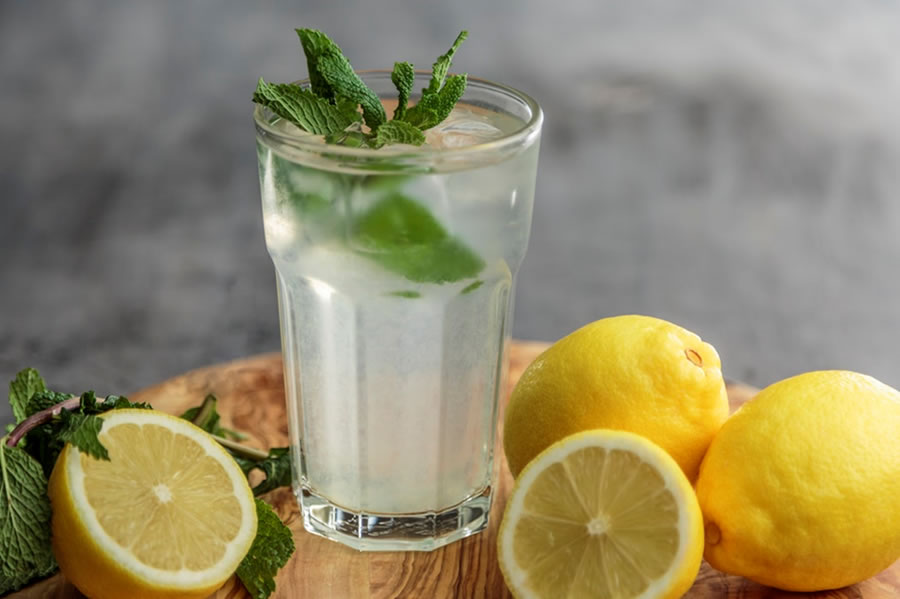
‘Inflammatory foods’ to Avoid
Processed Foods
Any food item that has multiple ingredients and was not homemade. This includes bread, cereals, pasta, crackers, pre-made meals, take-away and anything else in boxes, cans, or packaging.
Grains
All grains, even gluten-free grains, should be eliminated from your diet temporarily. This includes rice and corn.
Dairy
This includes all forms of dairy including milk, yoghurt, ice cream, cream and cheese. An exception could be made if you have access to raw goat or cow dairy that is from an organic or biodynamic farm.
Additives
This includes all-natural and artificial flavours, colours, additives and preservatives. If you are avoiding processed foods, this should not be an issue.
Sugar
All processed forms of sugar should be avoided completely. Honey and maple syrup should be used sparingly. Reduce your fruit intake to 1-2 pieces per week or avoid altogether. Berries are fine in small quantities. Avoid fruit juice (even homemade) entirely.
Alcohol
See topic three for more detailed information. Stop altogether.
Coffee
See topic four for more detailed information. Stop altogether.
Legumes
If beans and legumes are a regular part of your diet and you are preparing them correctly then including them in your diet is fine. However, do not add beans and legumes to your diet during the healing process.
Sauces and Condiments
This includes all dressings, BBQ sauces, mixed spices, gravy, mustard and ketchup. The reason is that you simply don’t know what is in these products. They may include harmful additives, artificial flavours and colourings, sugar and other ingredients that may delay the healing process.
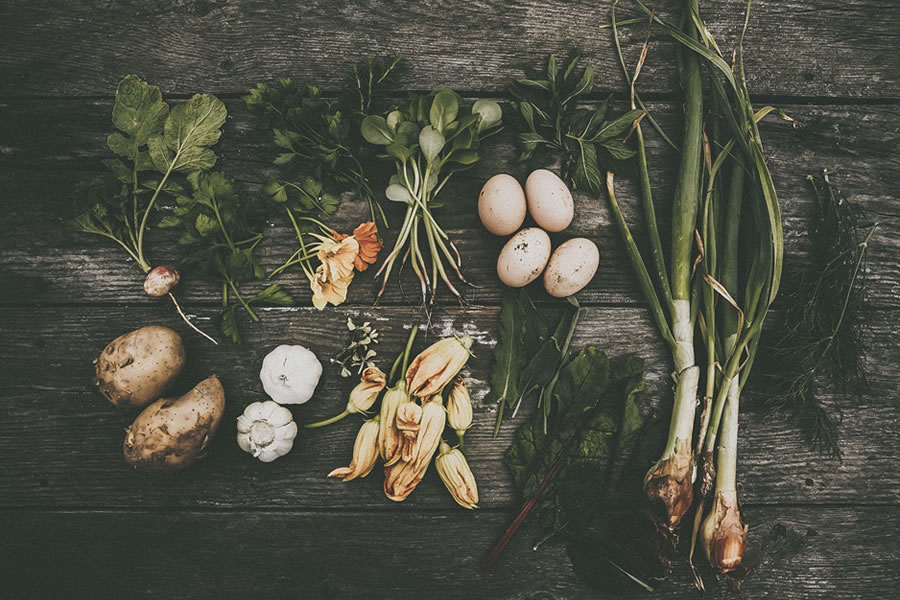
What are the benefits of this type of ‘anti-inflammatory’/’healing’ diet?
An anti-inflammatory/ healing diet forces you to eat nutrient-dense whole foods that can help your body to heal. This includes free-range meats, organ meats, vegetables, root vegetables, berries, fruit, water, and fresh herbs and spices.
It removes many of the barriers to healing. If the gastrointestinal system is not stressed, then energy can be focused on healing other systems of the body such as the nervous system and musculoskeletal system. With the removal of the most common inflammatory foods, all of the systems within your body are allowed to heal and rejuvenate.
By removing harmful fluids and foods, you could find that your body rewards you with healing and renewal.
If you’re interested in making these changes to your lifestyle to heal your body, you should consult a health professional first to suit your needs.
To book an appointment with a Effortless Superhuman ‘Pain and Dysfunction’ practitioner give us a call on (08) 9388 2768 today.
